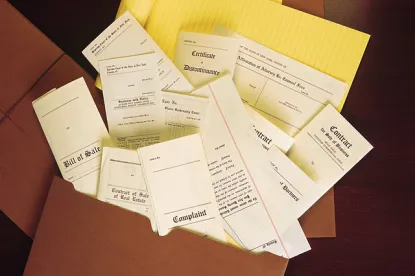Nothing sends chills through a Compliance Officer or General Counsel faster than receiving an agency subpoena or civil investigative demand (CID). The first questions that immediately come to mind are “what does it mean” and “what should I do?”
What Does it Mean?
Fundamentally, an agency subpoena or CID is a demand by the Government for some of your company’s records and, possibly, a written response to specific questions. Subpoenas and CIDs can be issued for a number of reasons, but there are three reasons we come across most often.
First, the subpoena or CID is part of a routine audit of your company’s compliance with an agency’s regulations. Agencies such as GSA or DCAA perform routine audits of companies that do business with the Government to ensure their accounting and compliance systems are in order. Those audits usually begin with a subpoena, so the Government can review a company’s sales records, pricing, cost accounting systems, and other policies to ensure compliant systems are in place.
Second, the subpoena or CID is part of an industry-wide investigation by the agency. Investigations into industry-wide trends often begin with a subpoena or CID. For example, the agency could be looking to see whether your company (among others) is in compliance with a particular regulation, such as the Trade Agreements Act.
Third, the subpoena or CID is in response to claims made by a relator. Frequently, a subpoena or CID is the first indication that a False Claims Act (FCA) complaint has been filed against the company. Relators file FCA complaints under seal while the Government decides whether it will intervene in the case. As part of that process, the Government will often conduct an investigation. The tool of choice for that investigation often is an agency subpoena or CID. The government typically will analyze the documents and information produced in response to the subpoena or CID to determine whether it supports the relator’s claims.
Being proactive is the best policy if you receive a subpoena or CID. Retaining an experienced attorney can position your company to navigate its response to the Government. Experienced counsel also can assess the potential risks stemming from the subpoena or CID. Being prepared for the possibility that a relator is lurking is always a best practice. Even if the subpoena or CID is part of a routine audit, it could reveal hidden problems that might result in an FCA investigation.
See Part II here.




 />i
/>i

